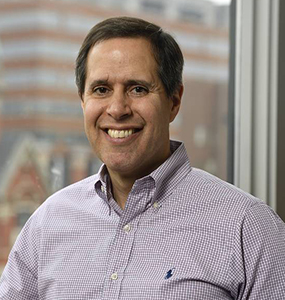 MICHAEL R. BLOOMBERG is a Johns Hopkins alumnus, founder of Bloomberg LP and Bloomberg Philanthropies, World Health Organization Global Ambassador for Noncommunicable Diseases, UN Secretary-General’s Special Envoy for Climate Action, and former New York City mayor.
MICHAEL R. BLOOMBERG is a Johns Hopkins alumnus, founder of Bloomberg LP and Bloomberg Philanthropies, World Health Organization Global Ambassador for Noncommunicable Diseases, UN Secretary-General’s Special Envoy for Climate Action, and former New York City mayor.
He is an entrepreneur and philanthropist who served as mayor of New York City from 2002-2013 after leading the company he started in 1981 for 20 years. Since leaving City Hall, he has resumed leadership of Bloomberg LP.
Bloomberg was elected mayor less than two months after the terrorist attacks of September 11, 2001. Under his leadership, the city rebounded faster and stronger than expected on issues ranging from education to health to economic development.
A lifelong philanthropist, Bloomberg founded Bloomberg Philanthropies, which focuses on five main areas: public health, education, the environment, the arts, and government innovation. He also leads a number of bi-partisan coalitions on urgent issues, including climate change, illegal guns, immigration reform, and infrastructure investment. In January 2013, he made the $350 million gift that established the Bloomberg Distinguished Professorships and provided undergraduate financial aid.
Bloomberg graduated from Johns Hopkins University and Harvard Business School.
Held by Daniel E. Polsky
 DANIEL E. POLSKY, Ph.D., is the 40th Bloomberg Distinguished Professor of Health Economics at Johns Hopkins University. He holds joint appointments in the Department of Health Policy and Management, Johns Hopkins Bloomberg School of Public Health and the Carey Business School. From 1996-2016 he was on the faculty at the University of Pennsylvania, where he was the Robert D. Eilers Professor the Wharton School and the Perelman School of Medicine. From 2012-2019 he served as executive director of the Leonard Davis Institute for Health Economics. Dr. Polsky, a national leader in the field of health policy and economics, has dedicated his career to exploring how health care is organized, managed, financed, and delivered, especially for low-income people. His own research has advanced our understanding of the cost and quality tradeoff of interventions whether they are changes to large federal programs or local programs. His most recent work focuses on how to provide access to quality health care in low-resource settings with a particular interest in narrow provider networks.
DANIEL E. POLSKY, Ph.D., is the 40th Bloomberg Distinguished Professor of Health Economics at Johns Hopkins University. He holds joint appointments in the Department of Health Policy and Management, Johns Hopkins Bloomberg School of Public Health and the Carey Business School. From 1996-2016 he was on the faculty at the University of Pennsylvania, where he was the Robert D. Eilers Professor the Wharton School and the Perelman School of Medicine. From 2012-2019 he served as executive director of the Leonard Davis Institute for Health Economics. Dr. Polsky, a national leader in the field of health policy and economics, has dedicated his career to exploring how health care is organized, managed, financed, and delivered, especially for low-income people. His own research has advanced our understanding of the cost and quality tradeoff of interventions whether they are changes to large federal programs or local programs. His most recent work focuses on how to provide access to quality health care in low-resource settings with a particular interest in narrow provider networks.
Dr. Polsky earned his Ph.D. in Economics from the University of Pennsylvania, an MPP from the Ford School of Public Policy, University of Michigan, and a BS in Economics from the University of Michigan.
 MICHAEL R. BLOOMBERG is a Johns Hopkins alumnus, founder of Bloomberg LP and Bloomberg Philanthropies, World Health Organization Global Ambassador for Noncommunicable Diseases, UN Secretary-General’s Special Envoy for Climate Action, and former New York City mayor.
MICHAEL R. BLOOMBERG is a Johns Hopkins alumnus, founder of Bloomberg LP and Bloomberg Philanthropies, World Health Organization Global Ambassador for Noncommunicable Diseases, UN Secretary-General’s Special Envoy for Climate Action, and former New York City mayor.